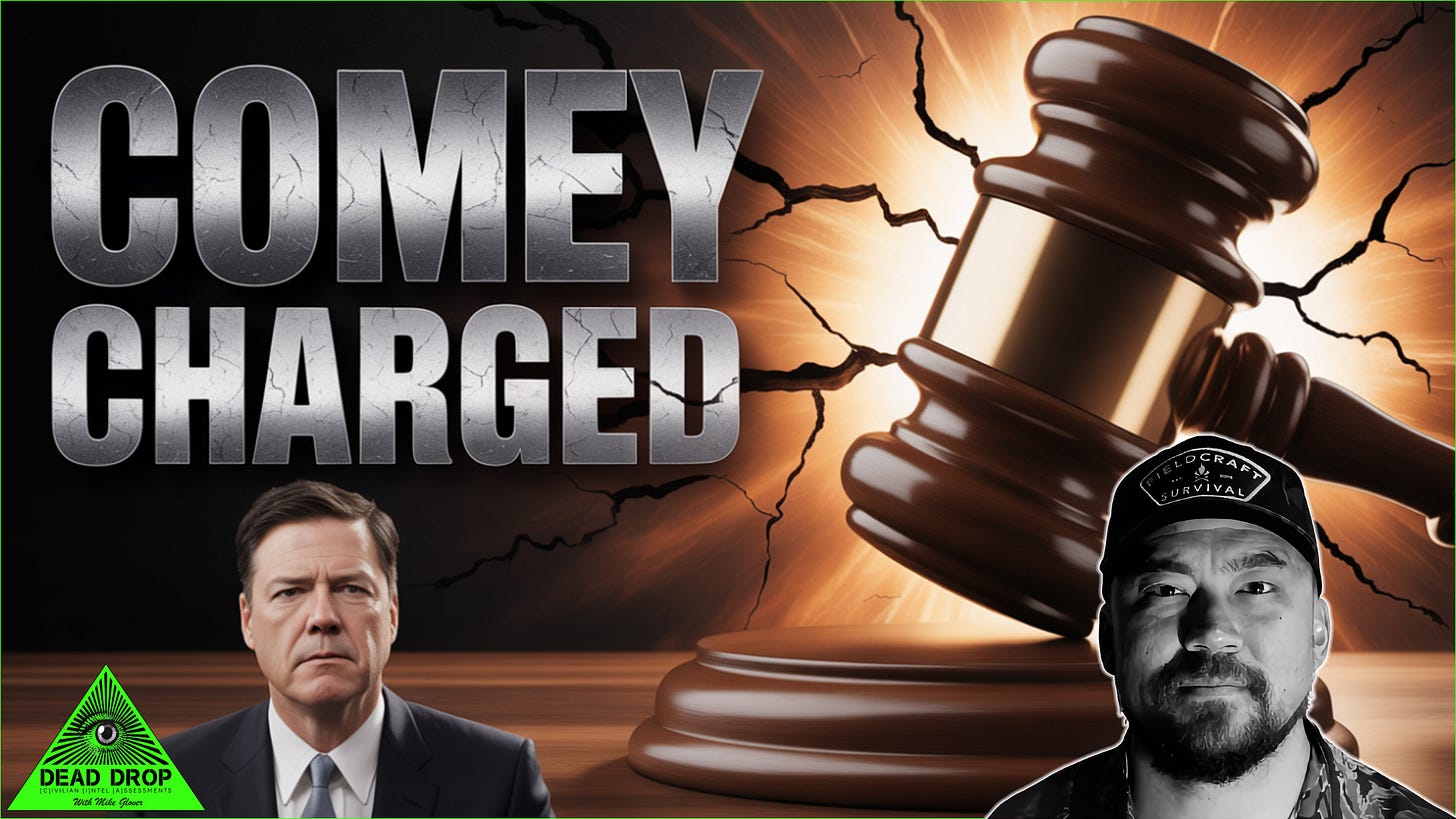When the Law, Not the Rhetoric, Holds Power to Account
Accountability Is Not a Weapon, It Is a Requirement
This week’s news was remarkable. Not because it is shocking that someone allegedly misled Congress, but because it cuts against the norm. A former high-ranking public figure is being indicted on criminal charges, not for politics, but for lying under oath. A jury found sufficient cause, which signals that the law may still apply to those in power.
That should give us more than hope. It should demand clarity. The question is not which political side benefits. It is whether the system is applied to everyone equally, even those we idolize or despise, and whether our institutions have the integrity to make that stick.
Keep reading below the thumbnail …
DISCLOSURE: This post contains affiliate links. If you make a purchase through them, we may earn a small commission at no extra cost to you. This helps keep our work independent. Thank you for your support.
Accountability Is Not a Weapon, It Is a Requirement
Too often accountability is wielded as a political insult. You want to hold me accountable but not them. If we mean what we say about no one being above the law, we must accept that it starts with tangible enforcement. It is not enough to promise oversight, investigations, or moral condemnation. There must be real legal consequences when public actors cross the line.
And yes, public officials hold power the rest of us do not. They wield enormous influence over legislation, regulation, enforcement, and resources. That imbalance demands that their personal behavior is held to a higher standard, not a lesser one.
The Financial Portfolios No One Talks About
One of the most corrosive forms of influence is the hidden flow of money. Ownership, investments, and assets. Some politicians or their insiders can hold vast portfolios in stocks, private equity, and real estate that yield tens or hundreds of millions of dollars. The defense is often, “That’s legal,” or “We disclosed it.”
But legality does not always mean purity. Conflicts of interest are not theoretical. They are real. When a legislator votes on regulations affecting industries in which they hold large stakes, or uses inside knowledge, that is where corruption hides. It lives in blurred gray zones, not always in overt bribes.
Scholars have found a revealing correlation. Politicians whose portfolios lean toward high-risk investments are more likely to end up involved in scandal. That is not proof of guilt, but it suggests that where capital meets power, we should look harder.
In practice, that means stricter disclosure rules, blind trusts, cooling-off periods, and enforcement of existing financial ethics laws. Above all, it means fear of accountability. If you abuse power for profit, you should not walk free.
Use code EATMEAT to get 10% off CarniVault products …
Do you want to get a care package of CarniVault meat and merch for FREE, and possibly earn a few bucks? If you have a decent social media following, email the URLs to your socials to Support@SurvivalDispatch.com. and we’ll consider adding you to our influencer program.
The Law Has Limits, But We Must Not Shrink Them Further
One reason corruption often escapes prosecution is that legal definitions have been narrowed. Courts have made standards tighter, and political checks have weakened. The Supreme Court in recent years has limited what counts as “official corruption” or “quid pro quo” in certain contexts. That makes many gray-area abuses non-prosecutable.
In many investigations the challenge is not whether evidence can be gathered. It is whether the law allows the evidence to meet the threshold for criminal liability. Indictments of high officials are rare. Not always because wrongdoing is rare, but because proving it beyond reasonable doubt is deliberately hard, especially amid secrecy and institutional resistance.
So when an indictment does happen, even an imperfect one, it breaks the assumption that certain people are untouchable. It reminds us that accountability is possible. And if it is possible once, it should be possible again.
Godspeed,
Mike Glover
Founder





I agree but what will be the end result, jail time or a slap on the hand